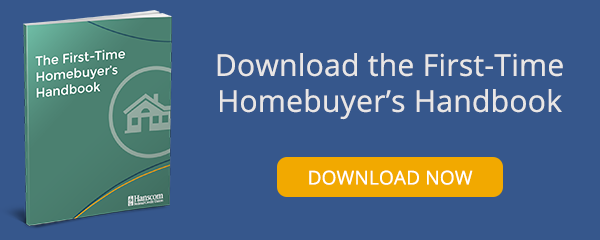I spent the last night at my old house, sleeping on the hardwood floor with only a toothbrush, toothpaste, and a change of clothes beside me. Everything else I owned sat in a moving truck in the driveway, ready for two financial transactions the next day: the sale of my old house in the morning, and the purchase of my new one in the afternoon.
Despite the less than glamorous sleeping arrangements and more-than-a-little stressful condition of being homeless for a few hours, I was lucky. Not everyone is able to time the two mortgage transactions on the same day.
What do you do when you have sold one house but need some time to transact on a new home, or you have the opposite problem: you've found your new home, but haven't sold your old one? Here are four ideas to make these situations work for you:
1. Pay to stay a little longer. Consider a rent-back agreement where the new owner allows you to stay in your sold home for a short period as a renter. You either pay them rent or take an agreed-upon amount off the purchase price. You will generally have to pay an upfront cost, similar to a security deposit, which you will get back when you leave. These agreements are often limited to 60 days, so don’t think you have unlimited time to make your next transaction. However, these agreements are common and it can be a handy way to juggle buying and selling transactions.
2. Arrange temporary housing in advance. Can you live with family and friends for a short time? Don’t hesitate to put the terms in writing, spelling out how long you will stay and what will be expected of you while you are there. You can also have your belongings put in short-term storage and stay at an Airbnb or extended stay hotel to bridge a timing gap. Keep in mind it's another expense you'll have to include in your budget.
3. Rent out your old property. If you have a new home but haven’t yet sold your old one, offering it as a short-term rental will allow you to continue paying the mortgage on that home while moving into another. The trick is finding the right person; check with your Realtor, who may have clients who may be in a situation where their home has sold but they don't have their "forever home" yet. Who knows? Maybe they'll discover your old home is what they're looking for! Renters will have to accommodate visits from prospective buyers and be fastidious about keeping the property tidy for showings. You'll want to check with your accountant about possible tax implications of renting out your home.*
4. Look into a bridge loan as a last resort. With a bridge loan, a lender provides you with cash to meet your temporary shortfall. These loans are generally backed by some form of collateral, usually the property you're selling. The terms sometimes allow a few months before any payment is due, reducing your financial crunch. Interest rates can be high on bridge loans and you'll often need more than 20 percent equity in the home you're selling to qualify. They make the most sense where homes sell quickly as they're short-term loans, usually six months at most. Note that Hanscom Federal Credit Union does not offer bridge loans, so our advice is to sell your old home first before you purchase another unless your income can support two mortgages for an indefinite amount of time.
No matter which option you choose, remember: millions of houses are bought and sold each year, and homeowners are always in the position of figuring out how to time the buying of a new home while selling their old one. Your Realtor or real estate attorney can be a great source of advice and assistance in finding a solution. Soon enough, your old house will sell, another will be bought and you will swap a cold, hard floor for a cozy bed and a warm future in your new home.
Even if you're buying your second, third...or fifth new home, you can learn something new in our First-Time Homebuyer's Handbook. Download it for free today!
Others are reading:
- 5 Mistakes First-Time Homebuyers Can Avoid
- 4 Things Every Homebuyer Needs to Know about Adjustable Rate Mortgages (ARMs)
- Back to Basics: Your Mortgage
- What You Need to Know About Buying a Condo
- What Does an Underwriter Look for When Reviewing a Home Appraisal
* The content is developed from sources believed to be providing accurate information. The information in this material is not intended as tax or legal advice. Please consult legal or tax professionals for specific information regarding your individual situation.




.jpg)









Comment